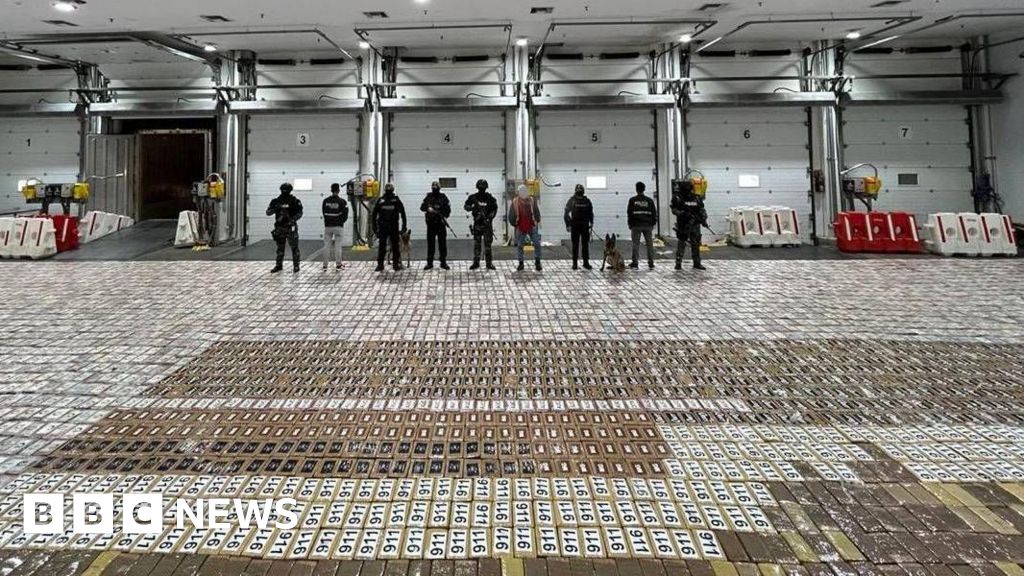Sniffer dogs in Ecuador have found 6.23 tonnes of cocaine hidden in a banana shipment, police say.
The dogs alerted their handlers, who seized 5,630 parcels filled with a white substance that later tested positive for cocaine.
The shipment was destined for Germany, officials said, and would have been worth $224m (£173m) had it reached its destination.
Five people had been arrested following the discovery, according to the prosecutor-general’s office.
Police said they had found the massive cocaine haul during a routine inspection of container stored at Posorja deepwater port south-west of Ecuador’s largest city, Guayaquil.
The cocaine parcels had been hidden beneath crates of bananas destined for export.
One of those arrested in connection to the drug discovery was a representative of the export company responsible for the shipment, whom prosecutors said had been present at the inspection and gave officials the names of the four other suspects.
They include the managers of the banana plantation where the cocaine is suspected to have been added to the fruit shipment, as well as the driver who took the container to the port.
Ecuador has become a major transit country for cocaine produced in neighbouring Peru and Colombia, with transnational criminal gangs using Ecuador’s ports to ship the drug to Europe and the US.
Last year, Ecuadorean security forces seized more than 200 tonnes of drugs, most of it cocaine. Only the US and Colombia seized more drugs in 2023.
Gangs have caused a wave of violent crime in Ecuador, leading President Daniel Noboa to declare a state of emergency and deploy tens of thousands of police officers and soldiers in an effort to combat them.
These security forces have stopped large amounts of cocaine from being shipped to Europe.
In January, officers found the largest stash ever to be seized in Ecuador – 22 tonnes of cocaine – buried in a pig farm.
However, extortion, kidnappings and murders remain high in the Andean country.

